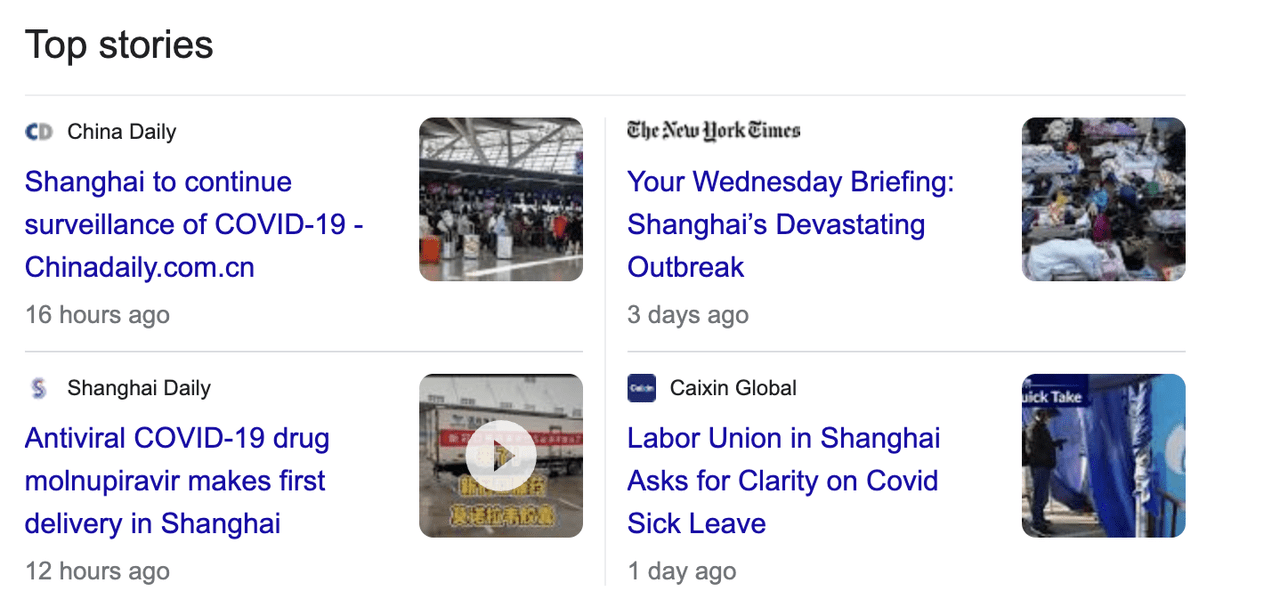[ad_1]
Pgiam/iStock via Getty Images
There is no further clarity on the delay of the NDA from Amicus Therapeutics (NASDAQ:FOLD) for AT-GAA (ATB200) in Pompe disease. China is facing a severe onslaught of Covid-19 when the rest of the world seems to have pretty much moved on. This has disrupted, among other things, the FDA’s ability to inspect manufacturing facilities of companies having operations in China. Amicus collaborates with WuXi, a Chinese company with manufacturing facilities in various cities. In my previous article, I speculated that “the manufacturing site is WuXi, an ancient historical city northwest of Shanghai.”
Shanghai covid (google)
This is still the situation in Shanghai, so that’s where the delay is coming from. A few months ago, no travel at all was possible. Now, things have eased a bit, but only moderately. I doubt the FDA will be able to send people to the city at this time, or for the foreseeable future. Hence the holdup.
In that article, I also wrote:
In Europe, where they do not have a preapproval inspection as a condition of approval, ATB200 will probably get approved by the end of this year.
Just last month, a panel of the European Medicines Agency (EMA) recommended the approval of Amicus Therapeutics’ “Pombiliti (cipaglucosidase alfa), in combination with the enzyme stabilizer miglustat, to treat adults with late-onset Pompe disease.” This guarantees EU approval, however, we are still stuck with inspection in the US, which is a large and material market.
Europe is a small sized orphan market for Pompe disease. A 2018 paper makes an estimate of its European prevalence at 1:283,000. That would put the European Pompe disease population at roughly 3146 patients. ERTs are available in Europe for treating Pompe disease; Sanofi’s (SNY) nexviazyme is also approved. Thus, adoption of a new therapy will take some time. The market potential is probably no more than a couple of hundred million dollars. Amicus has a market cap of $3.6bn. That is based on what, exactly?
For one thing, Amicus has one drug – Galafold (migalastat) – approved for Fabry Disease. This past quarter, the molecule made $81.7mn in revenue; “$51 million or 63% of revenue generated outside of the U.S., and the remaining $30 million or 37% coming from within the U.S.” In just that one indication, they are now making more than a quarter million dollars in revenue. Pompe Disease approval will double that revenue in a few years. Like the company says – “Galafold has the potential to surpass $500 million in annual revenue over the next few years through three key growth drivers: first, continuing to penetrate into existing markets; second, expanding into new geographies; and third, broadening the label.” A company with half a billion dollars in potential revenue deserves a $4bn market cap; however, for that to be correctly valued, Pompe treatment needs to be approved, and soon. The longer the delay, the more the risk, and more the company will appear overvalued.
I discussed why I think approval is probable, so I will quickly recap. PROPEL and COMET are two trials for AT-GAA and nexviazyme, respectively. PROPEL’s primary endpoint is 6MWT, and secondary endpoint is FVC. COMET’s is just the other way around; FVC is the primary endpoint, 6MWT the secondary endpoint. Nexviazyme failed its primary endpoint of FVC, but passed its secondary endpoint of 6MWT, and was approved on that basis. PROPEL failed its primary endpoint of 6MWT, but passed its secondary endpoint of FVC. Now, FVC is the more important endpoint because a problem with FVC causes more fatalities. That’s the core reason why AT-GAA’s approval seems likely.
Financials
FOLD has a market cap of $3.6bn and a cash reserve of $355mn. Total revenue in the third quarter 2022 was $81.7 million. Full year 2022 Galafold revenue guidance is $350 million to $365 million. The non-GAAP operating expense guidance stood at $430 million to $440 million. At that rate, the company has a cash runway of 5-6 quarters at the least. That gives them ample time to get Pompe disease treatment up and running. Also note they entered into a $250mn ATM facility with Goldman Sachs.
Also note, Paragraph IV Certification Notice Letters are sent by a company intending to file a generic drug application or ANDA. FOLD received such letters from Teva, Aurobindo and Lupin. The company plans to defend its IP.
Bottomline
The China inspection delay has put a spanner on what would broadly have been smooth sailing. Although the stock is down a bit, I have some small reservation about the trial failure, so I will not double down, but wait for a resolution of the inspection issue.
Editor’s Note: This article discusses one or more securities that do not trade on a major U.S. exchange. Please be aware of the risks associated with these stocks.
About the TPT service
Thanks for reading. At the Total Pharma Tracker, we offer the following:-

Our Android app and website features a set of tools for DIY investors, including a work-in-progress software where you can enter any ticker and get extensive curated research material.
For investors requiring hands-on support, our in-house experts go through our tools and find the best investible stocks, complete with buy/sell strategies and alerts.
Sign up now for our free trial, request access to our tools, and find out, at no cost to you, what we can do for you.
[ad_2]
Image and article originally from seekingalpha.com. Read the original article here.

